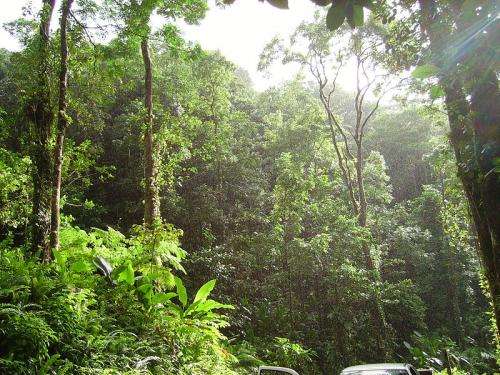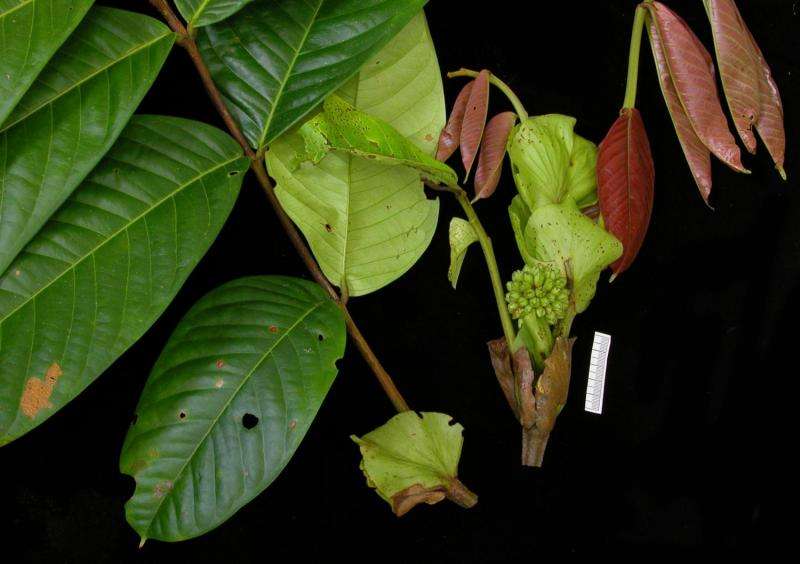June 3, 2015 report
Study effort leads to estimates of number of tree species in tropics

(Phys.org)—An unusually large team of researchers (over 140) from all walks of life have worked together to provide a new estimate on the total number of tree species in the three main tropical regions on planet Earth: the Americas (neotropics), Indo-Pacific and tropical parts of Africa. In outlining their findings in their paper published in Proceedings of the National Academy of Sciences, the team reports that assumptions about species diversity may have been over-generalized in the past.
For many years, the general consensus has been that the Americas have the richest diversity of tree growth in the world, also estimates of such diversity have ranged from thirty-seven thousand to fifty thousand worldwide—the researchers with this new effort say both assumptions are wrong. They found that the number of species in the Indo-Pacific tropics was nearly equal to that of the Americas, and that species numbers are closer to forty to fifty thousand in total. The researchers conclude that their findings regarding species variety numbers in the Indo-Pacific tropics make sense when considering the geography, history and topography of places such as India, Southeast Asia, Madagascar, etc. They also noted that there appeared to be few species shared among the tropical regions.
To come to these conclusions, the researchers collected data from a variety of sources, covering approximately 657,000 individual trees and over 11,000 species. More specifically, they found that tree species in the Americas and the Indo-Pacific tropics amounted to 19,000 to 25,000 each. Africa on the other hand had far fewer species, likely due, the team claims, to extinctions that have occurred since the Pleistocene and shrinkage of forests in general on the continent.

The team also notes that the three main tropical regions far outpace other regions in tree diversity—North America, for example, they report has less than a thousand individual species, and the temperate forests in Europe have as few as 124. They also note that a large number of species in general does not equate to large numbers of individual members of a species—many of the species samples they found turned out to be quite rare, suggesting that many of them may be at risk.
More information: An estimate of the number of tropical tree species, J. W. Ferry Slik, PNAS, DOI: 10.1073/pnas.1423147112
Abstract
The high species richness of tropical forests has long been recognized, yet there remains substantial uncertainty regarding the actual number of tropical tree species. Using a pantropical tree inventory database from closed canopy forests, consisting of 657,630 trees belonging to 11,371 species, we use a fitted value of Fisher's alpha and an approximate pantropical stem total to estimate the minimum number of tropical forest tree species to fall between ∼40,000 and ∼53,000, i.e., at the high end of previous estimates. Contrary to common assumption, the Indo-Pacific region was found to be as species-rich as the Neotropics, with both regions having a minimum of ∼19,000–25,000 tree species. Continental Africa is relatively depauperate with a minimum of ∼4,500–6,000 tree species. Very few species are shared among the African, American, and the Indo-Pacific regions. We provide a methodological framework for estimating species richness in trees that may help refine species richness estimates of tree-dependent taxa.
Journal information: Proceedings of the National Academy of Sciences
© 2015 Phys.org



















